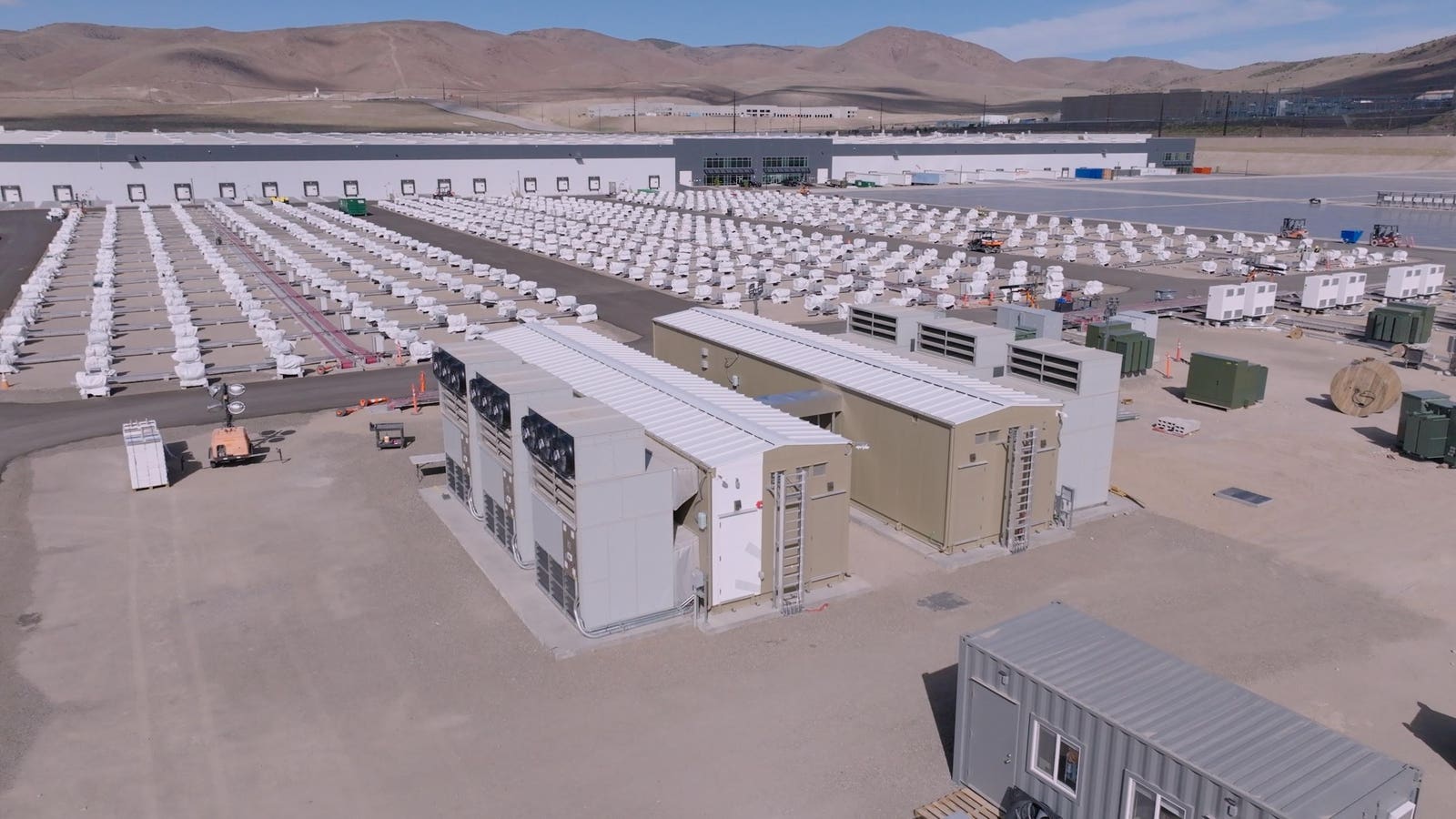A modular battery microgrid powers Redwood Materials’ Nevada campus.
Redwood Materials
General Motors, which has poured billions of dollars into producing electric vehicle batteries at U.S. plants, is partnering with Redwood Materials to use some of its cells for stationary energy storage systems for the power grid as well as AI data centers.
The Detroit-based automaker, which already supplies battery scrap materials to Redwood for recycling, plans to supply both new and used U.S.-made battery cells that Redwood will package as large stationary packs, the companies said. The move comes after Reno-based Redwood, founded by Tesla cofounder and current board member JB Straubel, last month created a new unit to supply energy storage packs called Redwood Energy.
“The market for grid-scale batteries and backup power isn’t just expanding, it’s becoming essential infrastructure,” said Kurt Kelty, GM’s battery chief. “Electricity demand is climbing and it’s only going to accelerate.”
Finding additional uses for battery cells beyond EVs can help GM maximize its investment in R&D and production of that technology as Trump Administration policies, distilled in the just-enacted One Big Beautiful Bill Act, darken the outlook for not only EV sales but large-scale wind and solar projects. Pursuing new applications for cleaner, less-polluting energy technology is exactly what many investors are encouraging companies to do.
“Someone said, ‘climate tech has gone from green to khaki,’ because it’s not just about green tech anymore. It’s all about domestic security and domestic supply chains,” Nicole LeBlanc, a partner at Toyota’s Woven Capital venture fund, recently told Forbes. “From an investment perspective, that mitigates some uncertainties around the climate element in terms of the scaling of these technologies. Because now they have a second market that is accelerating and has more money in it.”
Data centers are a particularly fast-growing source of electricity consumption, likely to use 12% of U.S. power generation by 2028, according to the Energy Department. In June, Redwood said it supplied a 63 megawatt-hour battery microgrid for use by Crusoe, an AI infrastructure company, that’s operating at its Nevada headquarters. That installation includes used GM batteries.
GM already makes lithium-ion batteries for its electric models and this week announced plans to also make lower-cost lithium-iron phosphate cells at its Spring Hill, Tennessee, plant. The company also recently announced plans to begin producing lithium-manganese-rich cells, a new cell chemistry expected to shave at least $6,000 off the cost of electric truck battery packs.
GM is upgrading its Spring Hill, Tennessee, plant to make lithium-iron-phosphate battery cells.
General Motors
GM and Redwood declined to provide financial details of the partnership, but will share more information later this year, they said in a statement.
Redwood, which Straubel cofounded in 2019, recycles used lithium-ion cells to recover valuable raw materials and also makes components for new batteries. The closely held company estimates it’s processing more than 20 gigawatt-hours of used battery cells–equivalent to 250,000 EVS–annually.
Straubel and Kelty worked together at Tesla, building up the EV company’s battery operations from its earliest days until 2017, when Kelty departed. Straubel, formerly Tesla’s CTO, left the company in 2019 to focus on Redwood.



